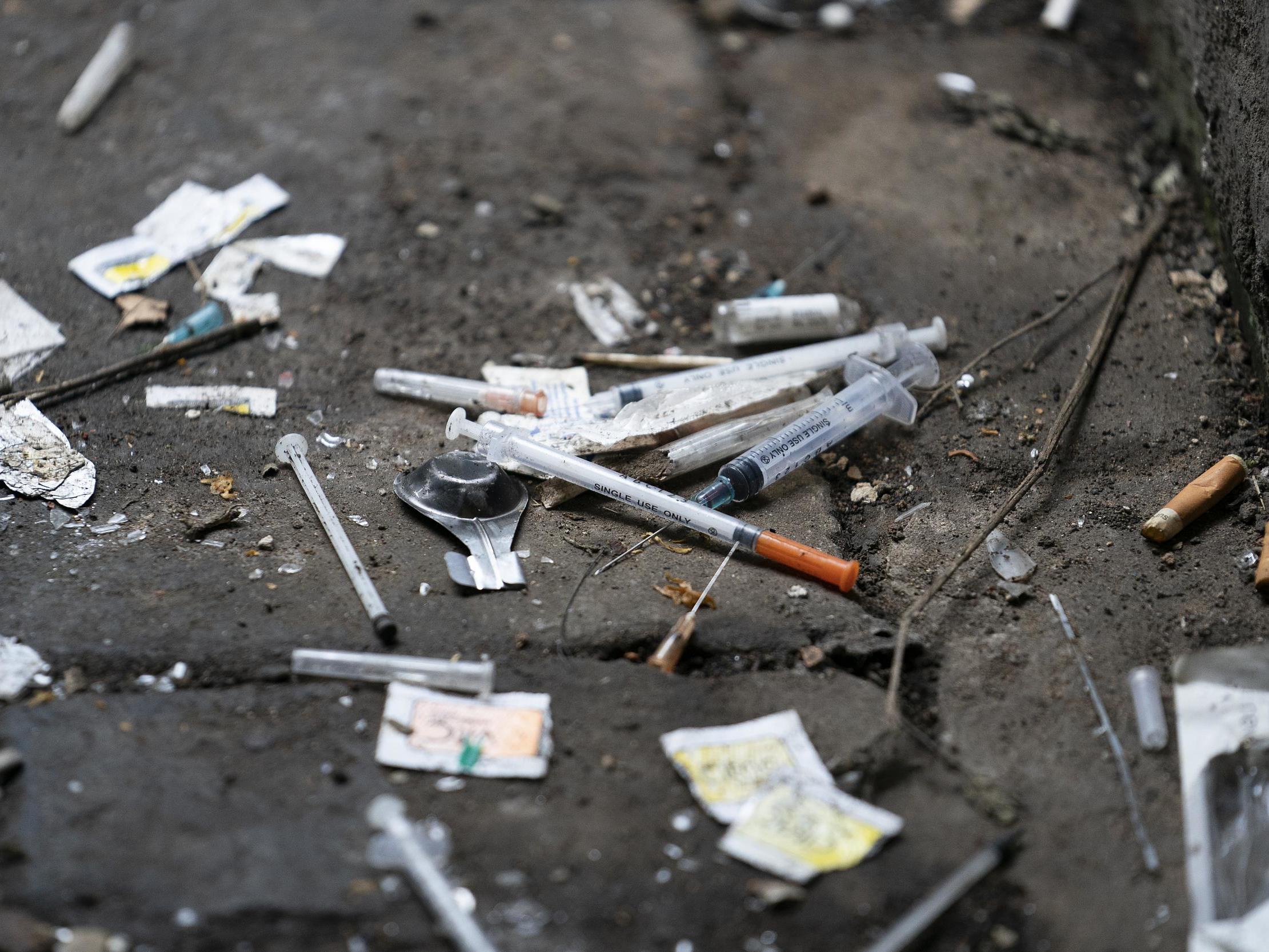Drug deaths are a much bigger crisis for the UK than the coronavirus – we don’t need summits, we need action
The danger with these talks is that they make the right noises but produce little change. Each day that we do nothing, another 15 people die as a result, writes Ian Hamilton


Nothing illustrates the difference in our perception of what is worthy of action than a comparison of the political attention given to coronavirus in contrast to those dying as a result of drug use.
Both are public health emergencies but so far it is drug-related deaths that have claimed thousands of lives a year, every year for more than a decade. So, while we are advised to wash our hands to minimise the spread of coronavirus, we have metaphorically washed our hands of those who use drugs and pay the ultimate price.
At last, the record number of drug-related deaths has prompted politicians to act. Of course, this being politics, we have an ugly display of one up-manship and point scoring, as the Scottish government held its drug summit the day before the Westminster convened one in Glasgow. At a time when we need collaboration politicians can’t bring themselves to share a room let alone solutions.
Unusually for a complex issue such as drug-related deaths, solutions are tried and tested. Dame Carol Black, who was appointed by the Home Office to review drug policy, presented some of the ways that drug deaths can be reduced when she spoke at the UK drug policy summit. These include drug consumptions rooms, optimising doses of substitute treatment and investing in specialist drug treatment – none of which is new or surprising. The first of these, drug consumption rooms, was ruled out by the government before Dame Black started talking and in spite of the Scottish government's plea to introduce these facilities.
There is clearly little love lost between Holyrood and Westminster, but this crisis requires our elected representatives to protect individuals and communities who bear the brunt of this petty squabbling and inaction. Dame Black’s report makes clear the urgency and need for a collaborative approach to tackle this crisis, something our politicians appear to be incapable of. Even if they manage to work together and agree the additional funding recommended for treatment by Dame Black, the workforce will need to be increased. That takes time, something we can ill afford.
As with so many aspects of health, these deaths are not experienced equally in our communities, as those from the poorest areas feel this grief most frequently. Michael Marmot revealed this week that after years of rising life expectancy we are now going backwards. Again, it is those in areas of high social deprivation that experience the sharpest decline in life expectancy.
Drug-related deaths clearly contribute to this reversal in overall life expectancy. Marmot makes clear that one of the primary drivers of this is austerity, as cuts to services that support individuals and communities in these areas bite.
Public empathy for people who have problems with drugs is low. A commonly held view is that these people have made the choice to use drugs and so are individually responsible for the consequences. The Marmot report makes the point that personal responsibility for health plays an important role in determining how many years of healthy living someone can expect to achieve, reminding us that stopping smoking and reducing our intake of alcohol will extend our lives. It's hardly new advice but sensible as it is, this feeds into the public perception that those who use drugs should just quit. The problem with this simplistic messaging is it presumes everyone has the same degree of choice and ability to make changes. It’s easy to save money when you have the surplus income to do this, harder when you don’t, even when you are fully aware of how sensible it is to do. So it is with drugs – you need surplus confidence and self-belief that change is possible. Unemployment, zero-hour contracts, lack of education and poor housing sabotage self-belief and confidence.
The danger with summits is they make the right noises but produce little change, neatly summed up by the slogan "they talk, we die’" Each day of inaction sees another 15 people die as a result of drugs. The answers are there, but our politicians appear to be much more keen on talking, rather than doing.
Ian lectures in mental health at the Department of Health Sciences, University of York
Join our commenting forum
Join thought-provoking conversations, follow other Independent readers and see their replies
Comments